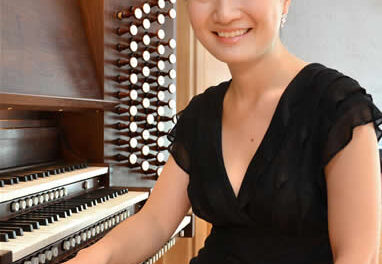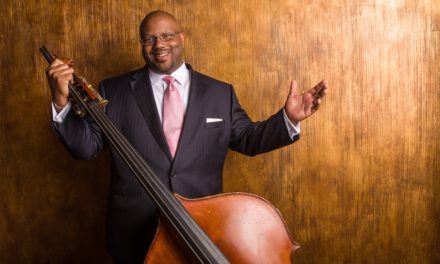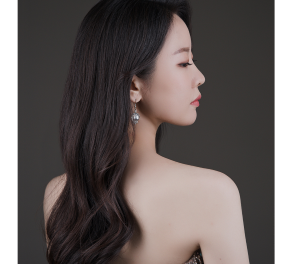It was one day off, but close enough. A cold, clear night, barely a day after near record warmth, revealed a near full moon just slightly and eerily shrouded in light clouds. A perfect night for the undead to rise from their daytime sleep to search the countryside for the one thing that will perpetuate their unclean state of immortality: human blood.
OK, so we all know the story. Whether by the original name Nosferatu, Dracula, or one of the myriad modernizations of one of the most enduring horror tales ever written, this story has something for everyone: religious symbolism, repressed sexuality, groan-inducing humor, and, most frightening of all, the realization that many of us, if given the chance, might partake of such an existence if it meant “living” forever.
Carolina Performing Arts was winding down its wildly, but certainly not surprisingly, successful festival “Glass at 80,” a commemoration and celebration of the life and work of the great American composer Philip Glass as he begins his ninth decade. A sell-out event at Memorial Hall on the campus of UNC at Chapel Hill, the presentation of the 1931 film Dracula, featuring a live performance of a Glass score by the Kronos Quartet and Glass himself, was one of the most highly anticipated events of this year’s local arts calendar.
Although there were movies that pre-dated director Tod Browning‘s 1931 Dracula – most notably the 1922 German silent film Nosferatu – and too many to list that came afterwards, it was Browning’s highly stylized masterpiece and Hungarian actor Bela Lugosi’s unforgettable depiction of Count Dracula that to this day remains the template for great horror movies.
By the time Dracula was made in 1931, “talkies,” or sound in movies was no longer revolutionary and that may have caused, at least during that transition, a neglect for original musical scores to enhance the emotional ebb and flow of the storyline. Except for some very brief snippets of Tchaikovsky and Wagner, Dracula had no music accompanying its story: a perfect vehicle for a modern composer to create his own, without stepping on someone else’s work.
Glass composed this new score to an old film classic sometime around 1997-98; he along with the Kronos Quartet (David Harrington and John Sherba, violins, Hank Dutt, viola and Sunny Yang, cello) began touring the following year with it. This performance at UNC was a reunion of sorts and a unique chance, because of scheduling considerations, to experience all these artists coming together.
One thing should be made very clear, and perhaps some audience members had some misperceptions of this event: this was not meant to be, nor was it, a Kronos Quartet and/or Philip Glass concert/recital. None of the musicians came out ahead of time nor were there any announcements. When the time arrived, the theater darkened and the movie began. This was an impeccably restored print with as clear and brilliantly contrasted shadings as I’ve ever seen. Simply put, it was visually stunning
It’s not uncommon in film showings with live music for the musicians to be in front of the screen, or in some manner constantly visible. When this film began, you at first could not see the musicians but quite soon a subtle, but quite clear, spotlight emerged on the quintet of players, plus conductor Michael Riesman, behind the screen. This view of them would go on and off throughout the screening, although I was unable to discern any pattern, or for that matter, purpose. At times their images actually interfered with what was appearing on screen, morphing several dramatic scenes into unintended comedy. It seems to me that having them positioned on the stage off to one side and visible all the time would have, paradoxically, been less intrusive.
Most of us have seen horror/monster/slasher films from all the decades of film history, and we are used to music backgrounds that tend to come out of a bag of clichés or, at least, punctuating the action and escalation of fright. In Glass’ score to Dracula there is absolutely none of that. In fact, this is as pure and iconic Glass music as you can get: arpeggios galore, unceasing repetitions of “units” of notes or chords, a feeling of acceleration that will never end. To me, it became just so much generic wallpaper that neither added to, nor took away from, the nuanced layering of the film. To make matters worse, there were numerous moments when the music drowned out the dialogue. This is not to say that I did not greatly enjoy the chance to see this movie again, nor the general effect the score gave to the film. My question becomes, since one of the biggest film studios, Universal, produced this film and they and Browning certainly could have afforded a composer at the time: did Mr. Glass “fix” something that should have been left as it was?













